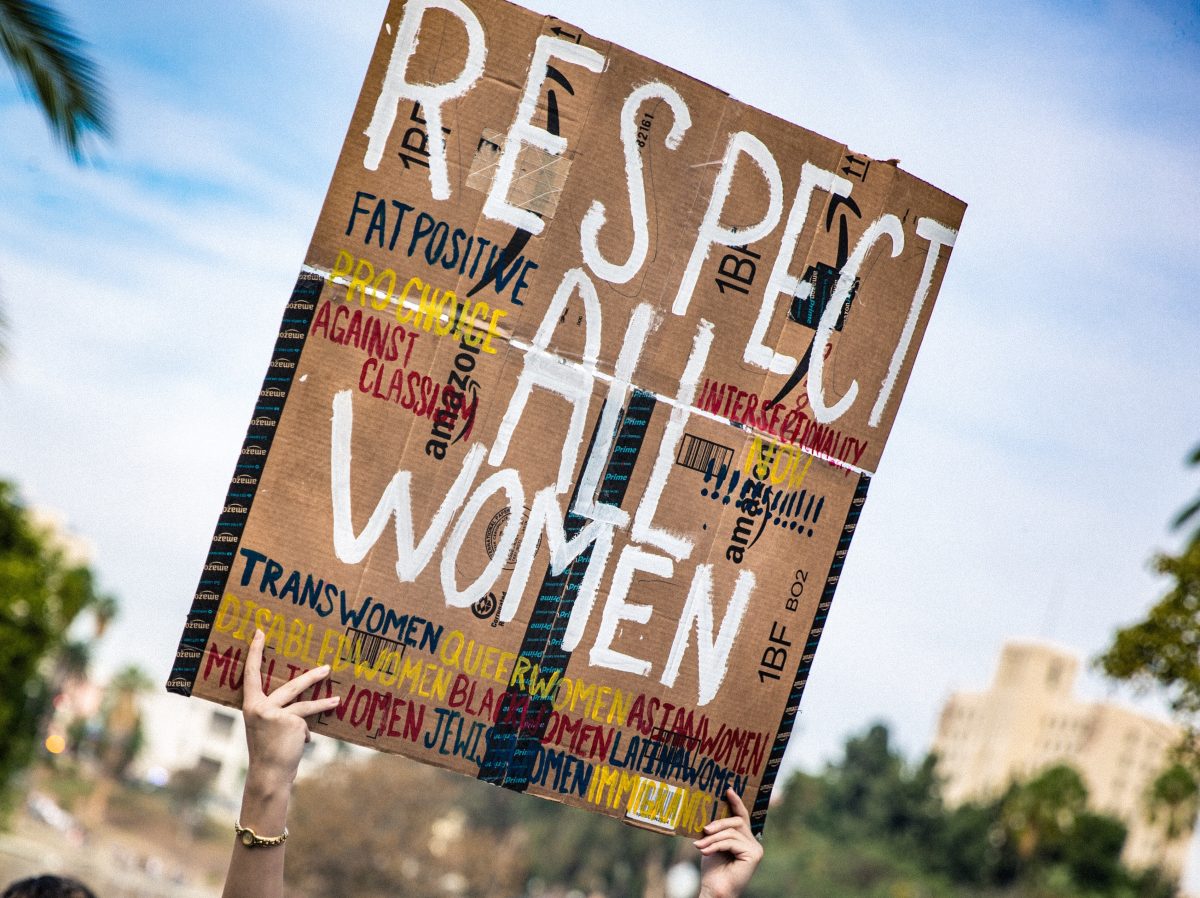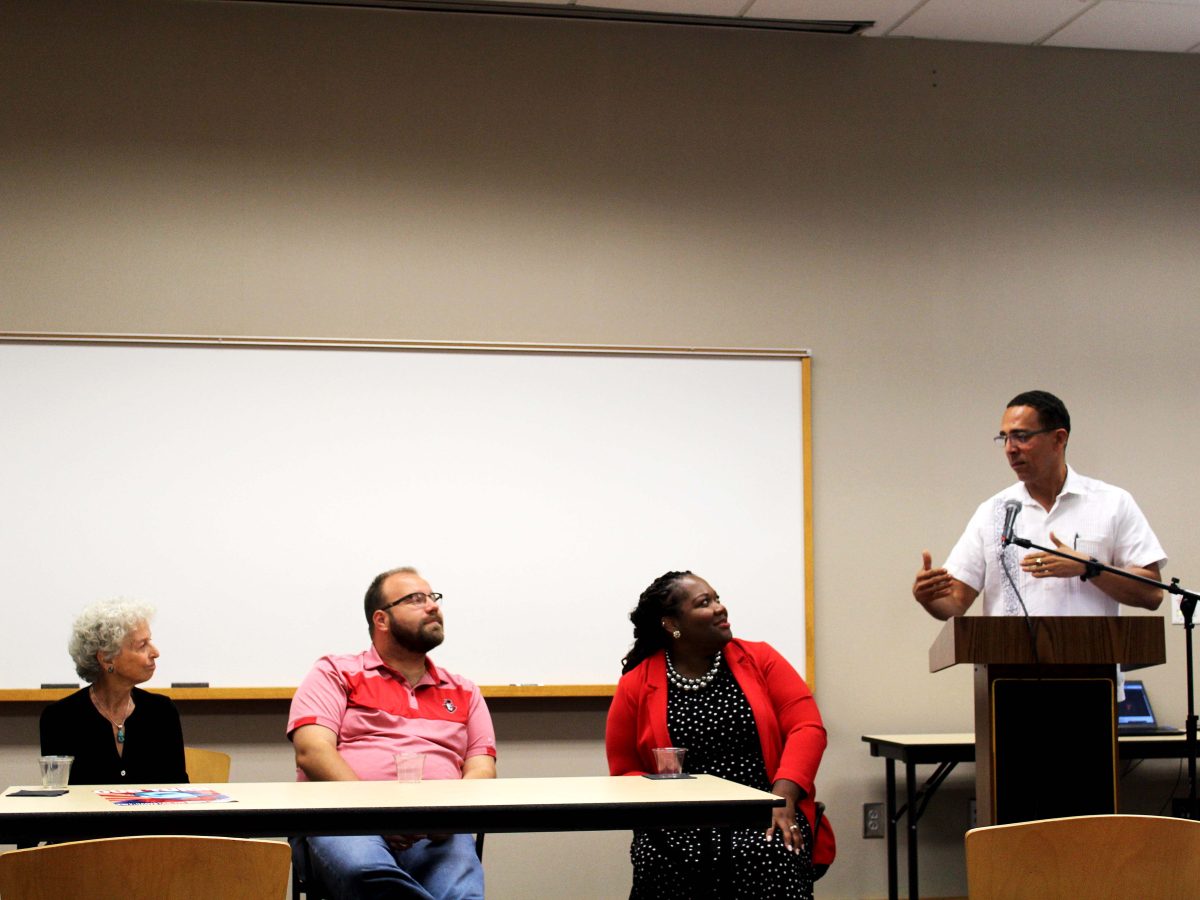Women’s Rights- Courtney Gaither
Women’s rights have had some of the most progress throughout U.S. history.
For centuries women have fought to become equal to their male counterparts and progression has proved that we will always continue to grow.
While women began meeting in small groups prior to the name feminism, organized feminism is thought to have started in 1848 in Seneca Falls, NY.
First wave feminism addressed political inequality in white women.
The 19th Amendment passed in 1920 allowing women the right to vote.
Second wave feminism largely addressed reproductive rights and coincided with the sexual liberation movement and the civil rights movement.
In 1960 the FDA approved birth control pills.
Roe vs. Wade in 1973 allowed women their right to an abortion and currently women still fight to improve the Lilly Ledbetter Fair Pay Restoration Act passed in 2009 to receive equal pay between genders.
What we’re living through now has come to be called third wave feminism, and continues to include reproductive and political rights, but also encompasses gender roles for men and women.
These advancements are some of the more prominent rights women have fought for but certainly not all that still remains in our journey.
One factor is true within women’s progression: without fight and uproar we would not have come this far.
Though progression takes time, it is important to remember that we as women should never stop in our fight of equality.
LGBT Rights- Katelyn Clark
The controversy over same-sex marriage and gay and lesbian rights all come down to basic human rights. No human should be treated less and have fewer individual rights simply because of the person they love.
We define our country on freedom founded on basic human rights for the American people. Adding in politics, religion, bias and more, it results in many gray areas when it comes to individual rights.
The first time same sex marriage became a public national discussion was 1993, according to the National Conference of State Legislatures, when the Hawaii Supreme Court ruled “laws denying same-sex couples the right to marry violated state constitutional equal protection rights unless the state could show a ‘compelling reason’ for such discrimination.”
Fast forward to Sept. 20, 2011, when federal government repealed Don’t Ask, Don’t Tell (DADT), the law prohibiting gay and lesbian individuals from serving openly in the military.
Fast forward again to June 26, 2015, when the Supreme Court declared same-sex marriage legal in all 50 states.
Whether opposition argues unconstitutional, an infringement on religious rights or another reason, the law remains the same. Progression won in the eyes of the law, but society still needs to step up.
You don’t have to believe in it. You don’t have to like it. You can voice your opinion like I’m voicing mine. That’s your right. That’s all our right; just like same-sex marriage and openly serving our country is now theirs.
It all comes down to basic human rights. And in the end, progression will always win.
Black Rights- Celeste Malone
I am an African American young woman, and I would not have been here today without the fight of progression.
Only 76 years ago, I would not have been able to further my education at the place of my choosing.
In the 1960s, African American men and women were not even allowed to set foot in the front doors of a restaurant. If it had not been for the trials, tribulations and triumphs of my ancestors, I would not be here.
In 1954, one of the most pivotal Supreme Court cases changed the face of education. In Brown v. Board of Education, the Court ruled that separate but equal schools were unconstitutional. This ruling overturned the precedent set by the Plessy v. Ferguson case nearly 60 years before.
Even in the 1960s, there was an uncanny hatred of African Americans. Signs plastered the streets of many southern cities still separating the ‘whites’ from the ‘colored’. These restrictions even poured into being able to vote. Even after women received their voting privilege in 1920, African Americans were kept from being able to vote.
The Civil Rights Act of 1964, signed by President Lyndon B. Johnson, outlawed discrimination based on race, sex and religion or national origin. It also helped put an end to the unequal application of voter registration and to racial segregation in schools.
Progression in the U.S. found a way to make an entrance in the face of this. The change may not come exactly when we want it, but it is always on time.
What’s Next- Elena Spradlin
Time and progress continue to march forward, but what does it mean, and where are we going?
Is there anything left to fight for, or are we done evolving?
In the face of these strides towards a society that accepts people of all races, sexual orientations and genders, regression is threatened everyday.
Young black men are killed or incarcerated at a disproportionately high rate.
Legislatures duck and weave the Supreme Court’s Roe v. Wade decision to shut down abortion clinics under the guise of protecting women’s health, when nothing could be further from the truth.
Women continue to be paid less than their male counterparts and face daily harassment.
LGBT adults and especially teenagers face the threat of violence because of their sexual identity every day, and LGBT teens are more likely than their straight peers to attempt or commit suicide.
But there is still hope, and the future doesn’t have to be as dark and scary as some people would have you believe.
If there is anything to be learned from the past, it is that the future belongs to those who are on the side of progress.
Believers in an inclusive society are on the right side of history, and much like sharks, we are unable to swim backwards.
Progress isn’t won without passionate and well-directed outrage or a message worth fighting for, but if history truly does repeat itself, political regression is not what we have to look forward to.











